Introduction to the Fair Housing Act and Its Importance in Jupiter
The Fair Housing Act (FHA), enacted as part of the Civil Rights Act of 1968, is a key piece of legislation aimed at preventing discrimination in housing. The Act protects individuals from discrimination based on race, color, religion, sex, familial status, national origin, and disability. It applies to a wide range of housing-related activities, including renting, buying, and financing homes. For real estate professionals, property managers, and landlords in Jupiter, Florida, understanding and complying with the Fair Housing Act is critical for maintaining legal and ethical business practices.
This guide will help you navigate the complexities of the Fair Housing Act, specifically focusing on how to avoid discrimination claims and ensure compliance in Jupiter’s real estate and property management sectors. Whether you are a seasoned professional or new to the industry, this guide will provide actionable insights, practical advice, and real-world examples to help you minimize the risk of discrimination and foster an inclusive environment for all.
Overview of the Fair Housing Act
The Fair Housing Act (FHA) was signed into law by President Lyndon B. Johnson in 1968, shortly after the assassination of Dr. Martin Luther King Jr. This was a pivotal moment in American history, as it marked a significant step toward dismantling systemic racism and segregation in housing. The FHA prohibits discrimination in the sale, rental, and financing of homes based on protected classes, including:
- Race
- Color
- Religion
- Sex
- Familial Status (having children under the age of 18 in the household)
- National Origin
- Disability
The intent of the Act is to ensure that everyone, regardless of their background or personal characteristics, has equal access to housing opportunities.
Key Provisions of the Fair Housing Act
To fully understand the implications of the Fair Housing Act, it’s essential to grasp its key provisions:
Prohibition of Discriminatory Advertising: Advertisements for housing should not indicate a preference or limitation based on race, color, religion, sex, familial status, national origin, or disability. For instance, terms such as “No children allowed” or “Ideal for single adults” could be considered discriminatory.
Equal Treatment in Housing Transactions: Sellers, landlords, real estate agents, and lenders must treat all potential buyers and renters equally. They cannot refuse to sell or rent to someone based on their protected characteristics.
Accessibility for People with Disabilities: The FHA mandates that multifamily housing built after 1991 must meet specific accessibility requirements for individuals with disabilities, such as wider doorways, accessible routes, and the ability to make reasonable accommodations for disabled tenants.
Reasonable Accommodations and Modifications: Landlords are required to make reasonable accommodations for tenants with disabilities, such as allowing a service animal in a no-pets building or allowing changes to a property for accessibility purposes.
Retaliation Prohibition: The FHA also prohibits retaliation against individuals who file complaints about discrimination or participate in investigations related to housing discrimination.
Why Compliance is Essential in Jupiter, Florida
In Jupiter, Florida, as in other parts of the United States, adherence to the Fair Housing Act is a legal obligation and a moral imperative. The state of Florida has its own set of housing laws, which complement federal regulations. Florida’s Department of Human Rights enforces state-level housing discrimination laws, and violations can result in legal penalties, fines, and lawsuits.
In addition to avoiding legal consequences, compliance with the FHA promotes fairness and equity in the housing market. Real estate professionals and property managers who foster inclusive practices help create diverse and thriving communities. For property managers and landlords in Jupiter, being proactive about Fair Housing Act compliance not only protects their business interests but also contributes to the broader social good.
Common Challenges to FHA Compliance in Jupiter
While the Fair Housing Act is clear in its objectives, compliance can sometimes be challenging due to various factors, including lack of awareness, unconscious bias, and operational complexities. In Jupiter, property managers and landlords may encounter unique challenges related to local housing markets, demographics, and the availability of affordable housing.
Unconscious Bias in Property Transactions
Unconscious bias refers to the attitudes or stereotypes that affect our understanding, actions, and decisions in an unconscious manner. In real estate, unconscious bias can manifest when a landlord or property manager makes decisions about applicants based on factors such as race, gender, or family status, even if those biases are not intentionally discriminatory.
For example, a landlord might unknowingly favor tenants of a particular racial background or make assumptions about a family’s ability to pay rent based on their familial status. In such cases, discriminatory practices may occur without the parties involved even realizing it.
Discriminatory Advertising Practices
Real estate professionals in Jupiter may inadvertently use language in advertisements that violates the Fair Housing Act. It is crucial to ensure that all marketing materials, including online listings, brochures, and flyers, are free from discriminatory language. Phrases such as “perfect for singles” or “no children allowed” may signal discrimination against families with children, while “Christian neighborhood” or “Muslim-friendly” might violate the FHA’s prohibition against religious discrimination.
Even subtle cues, such as showcasing predominantly white families in marketing materials or promoting housing in certain neighborhoods based on racial or ethnic composition, can result in discrimination claims.
Fair Housing Training and Awareness
One of the biggest challenges for property managers and landlords is ensuring that all staff members are trained on the Fair Housing Act and understand its implications. Training should go beyond a one-time session and be an ongoing process that fosters an environment of inclusivity and legal compliance.
In Jupiter, many real estate professionals may not fully understand the scope of the Fair Housing Act or how it applies to various aspects of property management. Continuous education and clear guidelines are essential to prevent discrimination in the housing process.
Reasonable Accommodation Requests
When dealing with individuals with disabilities, property managers must be prepared to respond to requests for reasonable accommodations. For instance, a tenant with a disability may request to install a wheelchair ramp or require modifications to the layout of a unit to make it accessible. Managing these requests in compliance with the FHA can be challenging if property managers are unsure of their responsibilities or the process involved.
The Importance of Compliance for Real Estate Professionals in Jupiter
For real estate agents, property managers, and landlords operating in Jupiter, Florida, adhering to the Fair Housing Act is not just about avoiding lawsuits—it’s about fostering trust and building a reputation as a fair, inclusive, and ethical business. Here’s why FHA compliance should be a top priority:
Legal Protection
By adhering to the Fair Housing Act, real estate professionals can significantly reduce the risk of legal issues related to housing discrimination claims. Violations can result in civil penalties, including fines, as well as legal costs and the potential for damage to your reputation. Discrimination claims can lead to long, costly lawsuits that may be difficult to defend, especially if there is a pattern of discriminatory actions.
Ethical Responsibility
Compliance with the FHA is also a matter of ethics. Real estate professionals in Jupiter have a responsibility to ensure that everyone has access to housing, regardless of their race, religion, gender, or other protected characteristics. Promoting fairness and inclusivity is key to fostering a positive and sustainable real estate market.
Economic Benefits
Investing in Fair Housing compliance can also be beneficial from a business standpoint. Properties that are accessible to a broader demographic tend to attract a larger pool of potential tenants and buyers. By making your properties inclusive and welcoming to all, you can tap into new markets, increase occupancy rates, and build long-term relationships with tenants and buyers.
Next Steps
The first step toward compliance with the Fair Housing Act is gaining a thorough understanding of its provisions and ensuring that your practices align with the law. In the next part of this guide, we will explore practical strategies for avoiding common pitfalls and maintaining compliance with the FHA in your everyday business operations. Stay tuned as we dive deeper into best practices for ensuring fair treatment of all prospective tenants and buyers in Jupiter.

Get a Free Rental Analysis
Want to know how much your home will rent for? We’ll send you a free rental report!
Best Practices for Fair Housing Act Compliance in Jupiter
In this section, we will dive deeper into the actionable steps that real estate professionals, landlords, and property managers in Jupiter can take to ensure compliance with the Fair Housing Act (FHA). We’ll explore best practices, provide practical examples, and discuss how you can build a culture of fairness and inclusivity while minimizing the risk of discrimination claims.
Implementing Fair Housing Training
A key element of maintaining compliance with the Fair Housing Act is ensuring that everyone involved in property transactions—whether they are real estate agents, property managers, or office staff—understands the principles of the law. Regular and comprehensive Fair Housing training is vital to minimizing the risk of discrimination, both intentional and unintentional.
Who Needs Training?
Training should extend to all employees involved in the rental or sale of property, including:
Real Estate Agents: Agents should be trained on how to show properties without engaging in discriminatory practices or making biased decisions based on protected characteristics.
Property Managers: Property managers play a significant role in screening tenants, negotiating leases, and enforcing building policies. They need to understand their responsibilities under the FHA, including reasonable accommodation and modification requirements.
Administrative Staff: Employees who handle paperwork, applications, or communication with tenants and applicants should also be trained to recognize and avoid discriminatory language or actions.
What Should the Training Include?
The training should cover the following key topics:
Overview of the Fair Housing Act: A refresher on what the FHA covers, including protected classes and specific prohibitions on discrimination.
Real-World Scenarios: Use case studies or hypothetical scenarios to illustrate how the FHA applies in day-to-day property transactions. These can highlight issues such as discriminatory advertising, unequal treatment in tenant screening, and requests for reasonable accommodations.
Unconscious Bias Awareness: Training should also address unconscious bias, helping staff recognize and mitigate any biases that may unintentionally influence their decisions.
Complaint Handling: Educate staff on how to respond to complaints or concerns from applicants, tenants, or buyers regarding potential discrimination.
By prioritizing regular Fair Housing training, you equip your team with the knowledge needed to uphold the principles of the FHA and protect your business from potential legal challenges.
Discriminatory Advertising: Avoiding Common Pitfalls
One of the easiest ways to violate the Fair Housing Act is through discriminatory advertising. Advertisements, whether they are online listings, print media, or signs, should always be carefully crafted to avoid any language or imagery that could be construed as discriminatory.
What Constitutes Discriminatory Advertising?
Discriminatory advertising includes:
Excluding Protected Classes: Any language that implies preference for a specific race, gender, familial status, religion, or other protected class is a violation of the FHA. For example, phrases like “Ideal for singles” or “Christian tenants preferred” may exclude families with children or individuals of different faiths.
Implicit Bias: Even if language does not explicitly exclude a group, subtle cues can create discriminatory impressions. For example, showing pictures only of certain racial or ethnic groups in an ad may suggest that the property is not open to other groups.
Limiting Rental/Ownership Opportunities: Terms like “No children allowed” or “Only for retirees” violate the FHA’s prohibition against discrimination based on familial status.
How to Avoid Discriminatory Advertising
To avoid violating the Fair Housing Act through your advertising, follow these best practices:
Use Inclusive Language: Avoid language that could be interpreted as excluding certain groups. For example, instead of saying “Perfect for professionals,” say “Ideal for anyone looking for a spacious home.”
Showcase a Diverse Range of Individuals: Ensure that the imagery used in your ads represents a variety of races, ethnicities, ages, family types, and abilities. This communicates that your property is open to all.
Review Your Listings for Compliance: Regularly audit your ads to ensure they align with Fair Housing guidelines. Tools like Fair Housing compliance checklists can help identify potentially problematic language.
Educate Your Team: Ensure that everyone involved in creating advertisements—whether it’s the marketing team or the property managers—understands what constitutes discriminatory advertising.
By adhering to these best practices, you will reduce the risk of creating ads that violate the Fair Housing Act and open your properties to a broader audience.
Tenant Screening and Application Processes
The tenant screening process is one of the most sensitive areas in ensuring Fair Housing compliance. The way you evaluate and select tenants must be objective, consistent, and free from bias.
Equal Treatment in Tenant Screening
When reviewing rental applications, landlords and property managers must avoid treating individuals differently based on their protected class status. For example, it’s crucial not to impose different rental requirements (such as income standards or credit checks) on applicants based on their race, national origin, or familial status.
Here are some common mistakes to avoid in tenant screening:
Discriminating Based on Source of Income: Refusing to rent to applicants who receive public assistance or social security is considered discrimination under the FHA.
Imposing Extra Criteria for Families with Children: For example, charging additional deposits or requiring special documentation from families with children may violate the FHA.
Selective Application of Rules: Enforcing property rules (e.g., pet policies, noise restrictions) inconsistently based on a tenant’s race, religion, or other protected characteristics is discriminatory.
Using Fair, Consistent Criteria
To ensure that your tenant screening process is fair and compliant with the FHA, follow these guidelines:
Apply Standard Criteria: Establish a uniform set of criteria for all applicants. This can include credit checks, rental history, and income requirements. Be consistent with how these criteria are applied across all applicants.
Document Decisions: Keep a record of why certain applicants were rejected or accepted. This documentation can serve as evidence of compliance if challenged later.
Avoid Asking Prohibited Questions: The FHA prohibits landlords and real estate professionals from asking certain questions, such as whether a tenant is pregnant, married, or has children. Keep your questions focused on the applicant’s ability to meet the rental requirements.
Train Your Team: Make sure all staff involved in the screening process understand the importance of applying fair, non-discriminatory practices. Staff should be familiar with the criteria and not engage in practices that might unintentionally exclude certain groups.
By applying fair and consistent tenant screening criteria, you minimize the risk of discrimination claims and ensure that every applicant is given equal consideration.
Reasonable Accommodations for Individuals with Disabilities
Under the Fair Housing Act, landlords are required to provide reasonable accommodations for individuals with disabilities. This includes allowing changes to the property that are necessary for accessibility and accommodating tenants’ specific needs related to their disability.
What is a Reasonable Accommodation?
A reasonable accommodation is a change to a policy or procedure that allows a person with a disability to fully enjoy their housing rights. For example:
- Allowing a service animal: Even in a no-pets building, a tenant with a disability may request to have a service animal.
- Modifying a unit: A tenant with mobility issues may request modifications, such as installing grab bars in a bathroom or widening doorways for wheelchair access.
Best Practices for Managing Accommodation Requests
When handling accommodation requests, landlords should:
Evaluate Requests on a Case-by-Case Basis: Each request should be considered individually. It’s important to understand the specific needs of the tenant and how the accommodation can help them enjoy the housing opportunity.
Do Not Charge Extra Fees: Landlords should not charge additional fees or deposits for accommodations related to disabilities, unless the tenant damages the property.
Seek Professional Advice if Needed: If you’re unsure whether a request qualifies as a reasonable accommodation, seek legal advice to avoid potential violations.
Maintaining Fair Housing Compliance: Ongoing Monitoring and Review
Compliance with the Fair Housing Act is not a one-time task but an ongoing responsibility. Property managers, landlords, and real estate agents must continually review their practices, assess their policies, and keep up to date with changes in housing laws.
Implementing Regular Audits
To maintain compliance with the FHA, conduct regular audits of your property management practices. These audits should review areas such as advertising, tenant screening, and handling accommodation requests. Identifying potential issues before they become legal problems can save you time, money, and reputational damage.

Responding to Fair Housing Complaints and Violations
In this section, we will explore how to effectively respond to complaints or violations of the Fair Housing Act (FHA). Understanding how to handle potential discrimination claims and violations is crucial to maintaining compliance and minimizing legal risk. We’ll also discuss strategies for preventing future violations and building a fair housing culture that aligns with both the law and your business values.
Responding to Fair Housing Complaints
Fair Housing complaints can arise from a variety of sources—tenants, applicants, or even employees. It’s essential to handle complaints promptly, professionally, and in accordance with legal requirements. The U.S. Department of Housing and Urban Development (HUD) or state and local agencies, such as the Florida Commission on Human Relations, can investigate these complaints.
Understanding the Complaint Process
When a Fair Housing complaint is filed, it typically follows this process:
Filing a Complaint: An individual may file a complaint with HUD or a local agency, citing an alleged violation of the FHA. Complaints can involve discriminatory actions in areas such as advertising, tenant screening, or handling accommodation requests.
Investigation: HUD or the local agency will investigate the complaint, which may include reviewing documents, conducting interviews with involved parties, and visiting the property in question.
Resolution: After the investigation, HUD or the local agency may find that no violation occurred, or they may propose a resolution. This can involve mediation, conciliation, or enforcement actions such as fines, changes to policies, or legal proceedings.
How to Respond if a Complaint is Filed
If a Fair Housing complaint is filed against you, here are key steps to take:
Act Quickly: Don’t ignore the complaint or delay your response. The quicker you address the issue, the better your chances of resolving it favorably.
Cooperate with Investigators: Be prepared to provide documentation, such as rental applications, communications with tenants, or advertising materials. Cooperation is crucial for a smooth investigation.
Consult an Attorney: If a formal complaint is filed, it’s advisable to consult with an attorney who specializes in Fair Housing law. An attorney can help you understand the nuances of the case and guide your response.
Prepare Your Defense: Gather evidence that supports your position. This could include proof that your actions were based on neutral criteria (such as income or credit checks), or that any action taken was in compliance with legal obligations, such as providing reasonable accommodations.
Stay Professional: Maintain a professional and respectful tone throughout the process. Even if you believe the complaint is unfounded, responding with hostility can negatively impact the outcome.
Possible Outcomes of a Fair Housing Complaint
Once a complaint is investigated, there are a few possible outcomes:
No Violation Found: If the investigation reveals that no violation of the FHA occurred, the case will be dismissed, and you can continue business as usual.
Conciliation: In many cases, disputes can be resolved through mediation, where both parties agree to certain actions without formal penalties. This is often the most favorable outcome for both sides.
Enforcement Action: If a violation is found, the agency may issue fines or require corrective actions, such as changes to your policies or practices. In severe cases, legal proceedings may be initiated.
Being proactive in preventing discrimination claims can help you avoid the stress and expense of dealing with formal complaints.
Correcting Violations: Practical Steps for Compliance
When a violation of the Fair Housing Act occurs, it is important to take immediate and effective corrective actions to ensure compliance moving forward. The steps for correction will depend on the nature of the violation, but in all cases, prompt action is crucial.
Immediate Action Plan
Once a violation is identified or a complaint is substantiated, implement the following steps:
Review and Revise Policies: Assess your current policies and practices to identify what led to the violation. Revise any practices that could be deemed discriminatory, such as biased advertising, unequal treatment in tenant screening, or improperly handling accommodation requests.
Offer Compensation or Remedies: If a violation affected a tenant, applicant, or buyer, offer reasonable remedies. This could include providing a fair opportunity to rent or purchase a property, waiving fees, or offering accommodations that were previously denied.
Ensure Compliance with Corrective Actions: Once violations have been addressed, ensure that all staff, employees, and agents are trained on the new procedures. Regular follow-up checks are essential to make sure corrective actions are being adhered to.
Long-Term Compliance Measures
Correcting an individual violation is important, but preventing future violations requires a more systemic approach. Consider implementing these long-term compliance measures:
Ongoing Training: As mentioned in Part 2, training should not be a one-time event. Regularly schedule refresher training sessions to reinforce Fair Housing principles and keep staff updated on any changes in the law.
Policy Audits: Conduct periodic audits of your policies, practices, and communications to ensure continued compliance. These audits can also include an evaluation of tenant screening processes, advertising materials, and complaint procedures.
Third-Party Consultation: Work with legal or Fair Housing experts to review your practices and identify any potential blind spots. These experts can help you maintain an objective perspective and ensure ongoing compliance.
By adopting long-term compliance measures, you can ensure that your operations align with the Fair Housing Act’s requirements and minimize the risk of future violations.
Building a Fair Housing Culture: Preventing Discrimination from the Start
One of the most effective ways to prevent Fair Housing violations is to foster a culture of fairness and inclusion within your business. By making Fair Housing principles a core part of your values, you can reduce the risk of discriminatory actions and promote a more inclusive environment.
Promoting Diversity and Inclusion
Encourage diversity in your property management practices, marketing materials, and tenant communications. Here are a few tips for building a diverse and inclusive culture:
Diversify Marketing Materials: Showcase a variety of tenants in your advertising to reflect a broad range of races, ethnicities, ages, and family types.
Encourage Equal Opportunities: Ensure that your team is committed to offering equal opportunities to all applicants, regardless of their background or personal characteristics.
Foster Open Communication: Create a system for tenants to voice concerns about potential discrimination. Ensure that all complaints are taken seriously and addressed promptly.
By embedding fairness and inclusivity into your culture, you reduce the likelihood of discriminatory behavior while promoting a welcoming environment for all potential tenants or buyers.
Creating Clear Communication Channels
Effective communication is key to preventing discrimination and ensuring compliance with the FHA. Establishing clear, transparent channels of communication with tenants, applicants, and employees helps address issues before they escalate. Here’s how to set up these channels:
Complaint Mechanisms: Provide tenants and applicants with a straightforward way to report concerns. This could be a dedicated email address, phone number, or online portal for submitting complaints related to discrimination.
Regular Updates: Keep your team informed about any changes in Fair Housing laws, policies, or procedures. This ensures that everyone is on the same page and knows how to handle potential issues.
Transparency: Be open about your commitment to Fair Housing and the steps you are taking to promote inclusivity. Transparent communication fosters trust and helps prevent misunderstandings or allegations of discrimination.

Best Practices for Preventing Discrimination Claims in Jupiter
In this final part of the guide, we will focus on practical best practices for preventing discrimination claims related to the Fair Housing Act (FHA). These strategies aim to establish strong, proactive policies, improve tenant relations, and ensure compliance in all aspects of real estate operations. By adopting these methods, property managers, real estate professionals, and landlords in Jupiter can effectively safeguard against legal risks while promoting fair housing practices.
Comprehensive Tenant Screening Practices
One of the most critical steps in preventing discrimination claims is implementing a fair and consistent tenant screening process. Discriminatory practices during tenant selection are a common source of FHA violations. Below are strategies for fair, non-discriminatory tenant screening.
Standardized Application Process
Ensure that the tenant application process is standardized, with the same criteria applied to every applicant. This helps avoid any appearance of bias and ensures that all candidates are evaluated fairly. Key elements to standardize include:
Application Forms: Use a standard application form for all applicants. Ensure that questions are focused on objective criteria such as income, credit history, rental history, and criminal background (if relevant).
Eligibility Requirements: Set clear eligibility requirements, such as minimum income levels, acceptable credit scores, and other neutral criteria that apply to all applicants.
Documentation Requests: Request the same documentation from all applicants (e.g., proof of income, references, etc.). Avoid making exceptions that could appear discriminatory.
Avoiding Discriminatory Criteria
While tenant screening is essential, be mindful of criteria that could inadvertently lead to discrimination claims. For example:
Criminal Background Checks: Be cautious with criminal background checks. Overly broad criminal screening policies that disproportionately affect individuals of a certain race or ethnicity may be considered discriminatory under the FHA. Focus on the nature of the offense and its relevance to the tenancy, rather than using a blanket policy.
Income and Credit: Ensure that income and credit criteria are applied equally to all applicants. Avoid setting income requirements that could disproportionately affect individuals from certain socioeconomic backgrounds unless they are justified by the rental property’s cost.
Disability and Family Status: Never reject an applicant based on disability or family status. The FHA prohibits discrimination against individuals with disabilities and families with children. If an applicant has a disability, offer reasonable accommodations if requested, such as allowing a service animal or providing additional time for paperwork completion.
Documenting Tenant Screening Decisions
To protect yourself in case of a dispute, it’s essential to document all tenant screening decisions. This includes keeping records of:
Application Rejections: If you reject an applicant, document the specific reason for the rejection, based on the criteria you’ve established. This can help defend against any allegations of discriminatory practices.
Communications with Applicants: Keep a record of all communications with applicants. This includes emails, phone calls, and in-person conversations. Clear documentation ensures that you can demonstrate compliance if questioned.
Transparent and Inclusive Advertising Practices
Advertising plays a significant role in ensuring compliance with the Fair Housing Act. Discriminatory advertising is a common pitfall that can lead to serious legal consequences. Below are essential practices for fair and inclusive property advertising.
Fair Housing Language in Advertisements
Always use inclusive, non-discriminatory language in property advertisements. The FHA prohibits ads that indicate preference or limitation based on race, color, religion, sex, national origin, disability, or family status. Best practices include:
Avoiding Biased Terminology: Steer clear of words or phrases that could suggest a preference for specific groups, such as “ideal for young professionals” or “suitable for families.” Instead, focus on features like location, size, and amenities that apply to all potential tenants.
Including Fair Housing Statements: Every advertisement should include a Fair Housing statement, such as: “We are an equal opportunity housing provider” or “This property is available to all qualified applicants without regard to race, color, religion, sex, national origin, disability, or family status.”
Equal Opportunity Listings
When listing properties, use platforms that ensure equal visibility for all types of tenants. For example:
Real Estate Websites: Ensure that your listings are posted on reputable, non-discriminatory platforms that reach a broad audience, such as Realtor.com or Zillow. Avoid platforms that cater only to specific groups unless there is an appropriate reason.
Physical Advertisements: If you post flyers or print ads, ensure that they are visible to all potential tenants and avoid targeting one particular demographic.
Diverse Marketing Strategies
Consider using marketing strategies that promote diversity and inclusivity. This can include:
Imagery: Use photos of people from diverse backgrounds in your marketing materials. This helps reflect an inclusive environment and signals that you are open to all potential tenants.
Community Outreach: Engage with local organizations that support diverse communities, including those that serve underrepresented groups. This fosters goodwill and can help broaden your applicant pool.
Training and Education for Staff
Proper training is a cornerstone of Fair Housing compliance. All employees, including leasing agents, property managers, and office staff, must be trained on the FHA and its provisions. Regular education on these topics ensures that everyone involved in the rental process understands their responsibilities and can identify and avoid discriminatory practices.
Annual Fair Housing Training
Provide annual training to your staff on the principles of the Fair Housing Act. Training should cover:
Legal Requirements: Teach staff about the protected classes under the FHA and the kinds of behaviors that could lead to discrimination claims.
Scenario-Based Learning: Use real-life scenarios to illustrate how discrimination might occur in the rental process. This could include case studies of past complaints or violations.
Role-Playing: Engage staff in role-playing exercises to practice handling difficult situations, such as requests for accommodations or interactions with applicants from different backgrounds.
Ongoing Education
Fair Housing laws may change, so it’s important to ensure ongoing education for your team. Subscribe to updates from organizations such as the National Fair Housing Alliance or local housing authorities to keep abreast of any changes in the law.
Implementing Effective Dispute Resolution Procedures
Even with the best practices in place, conflicts may arise with tenants or applicants. An effective dispute resolution process can help resolve issues quickly and prevent them from escalating into formal complaints or lawsuits.
Clear Communication Channels
Ensure that tenants know how to voice concerns or complaints. Provide a clear and accessible way for them to communicate any issues related to discrimination. This might include a dedicated email address, an online form, or in-person office hours.
Mediation and Conflict Resolution
In the event of a dispute, consider offering mediation services to resolve conflicts amicably. Mediation allows both parties to discuss their concerns in a neutral setting and find a mutually agreeable solution.
Maintaining Documentation
Keep detailed records of all complaints, disputes, and resolutions. This documentation can protect you in the event that the matter escalates or is reviewed by a regulatory body.
Final Thoughts on Preventing Fair Housing Violations in Jupiter
Preventing Fair Housing violations is a critical responsibility for anyone involved in the real estate industry in Jupiter. By adhering to the principles of equal opportunity, implementing standardized processes, providing ongoing training, and fostering a culture of fairness, you can ensure compliance with the Fair Housing Act and avoid costly legal issues.
A proactive, systematic approach to Fair Housing compliance not only mitigates risk but also helps build a reputation for ethical and inclusive property management. In a diverse and growing market like Jupiter, maintaining compliance will set you apart and position your business as one that values fairness and equal opportunity for all residents.
By following these best practices and continuously improving your understanding of Fair Housing, you can provide a safe, welcoming, and legally compliant environment for all who seek housing in Jupiter.
Suggested Helpful links:
Comprehensive Guide to Fair Housing Laws in Palm Beach County and Avoiding Lawsuits
How Property Managers Handle Fair Housing Compliance and Protect Landlords from Lawsuits
Advertising Strategies That Cut Days on Market by 50%
The Comprehensive Guide to Legal Compliance in Palm Beach County Property Management
Comprehensive Guide to Investment Property Tax Deductions: Maximize Your Savings



